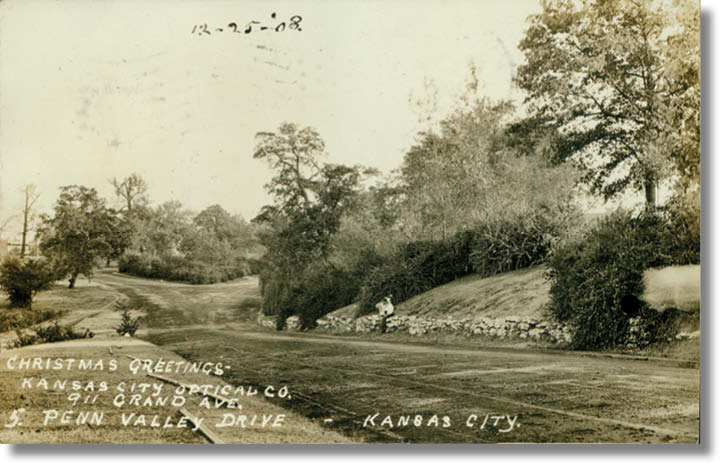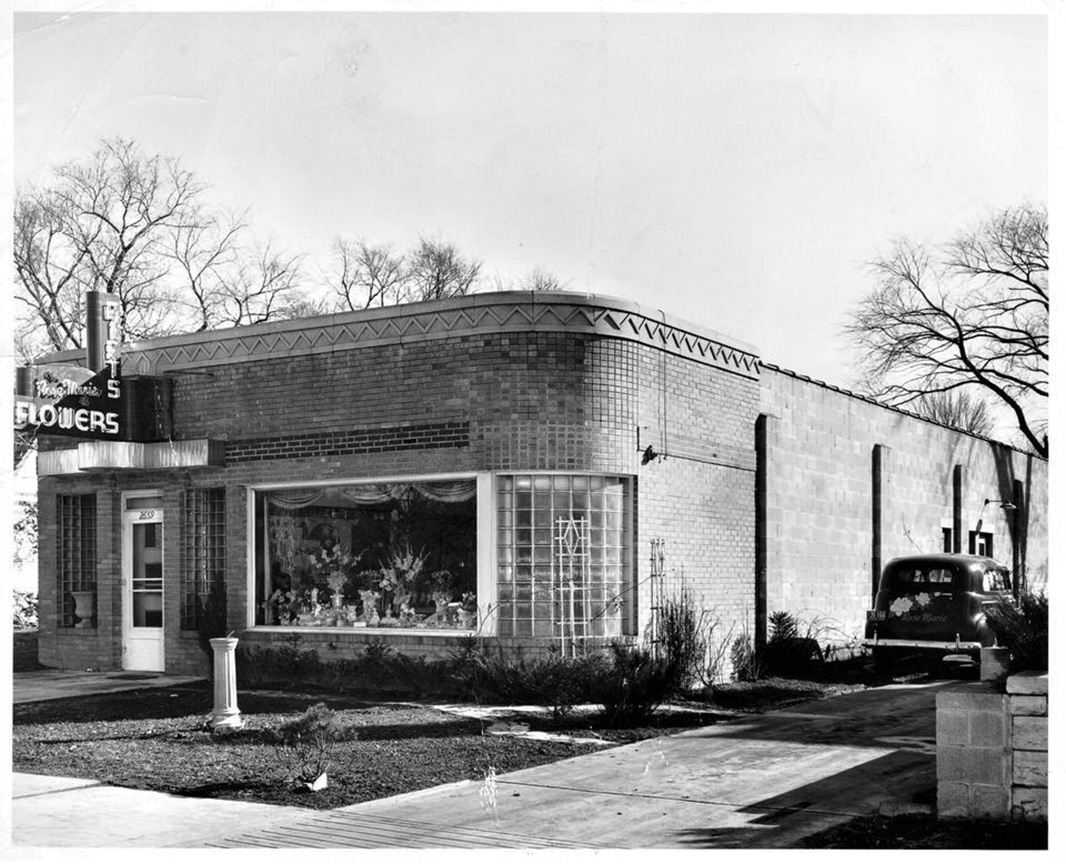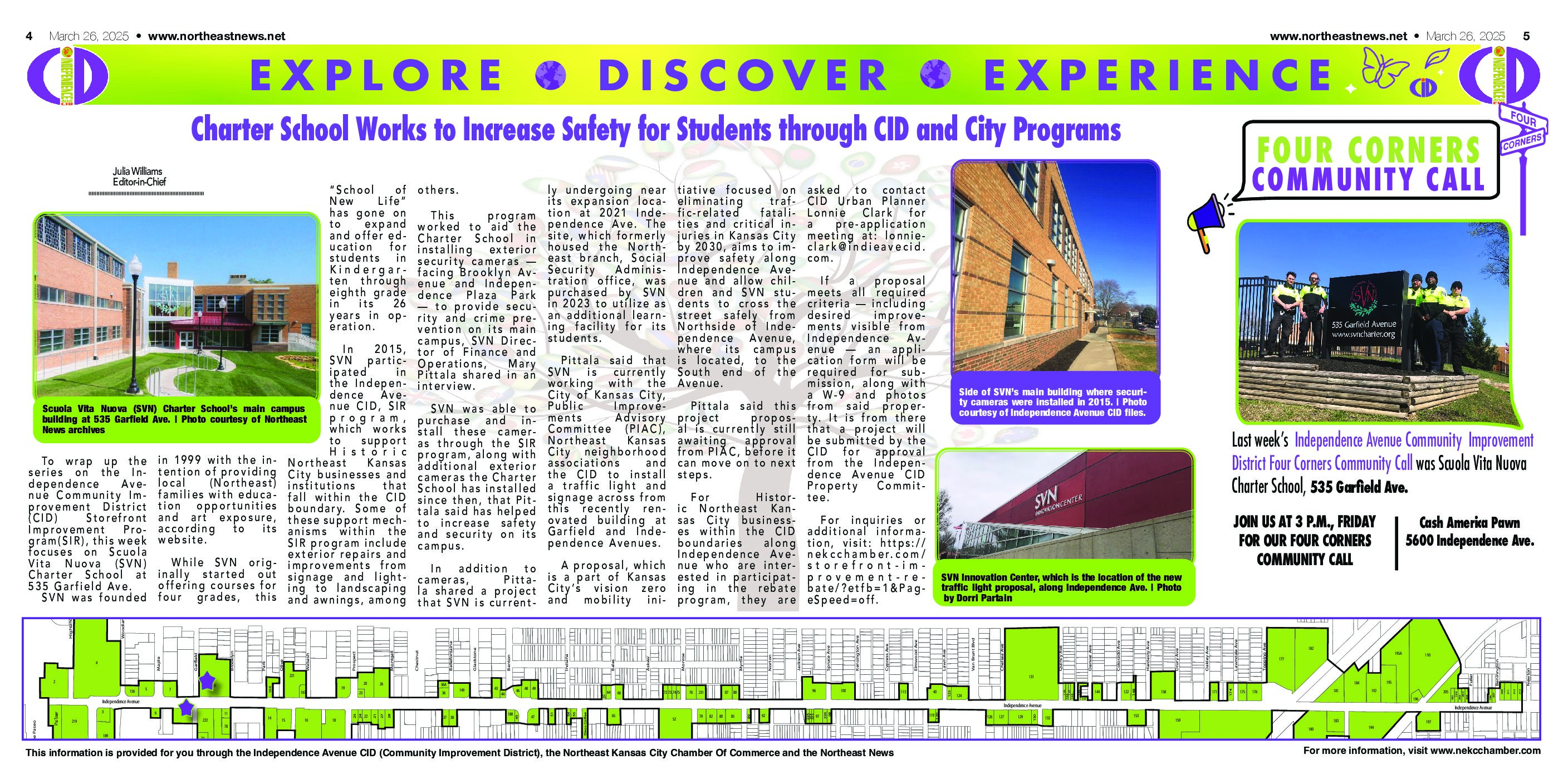By Michael Bushnell
Northeast News
July 13, 2016
This week, a rare treat — a Real Photo postcard showing a newly completed Penn Valley Drive in Penn Valley Park, Kansas City, Mo.
Published as a Christmas greeting for the Kansas City Optical Company, at 911 Grand Ave., it shows a pastoral summer view in the park near the Santa Fe Trail marker placed by the Daughters of the American Revolution.
Once part of an area dubbed by locals as “Vinegar Hill,” it was populated by shacks, shanties and lean-to’s in a large ravine overgrown with brambles and weeds. The northeastern corner of the park was also home to Signboard Hill, a rocky hillside area businesses used to erect advertising signs of every shape and size.
Land acquisition for the park began in 1900 and continued until 1926, after almost 176 acres had been secured. Noted landscape architect George E. Kessler oversaw the construction of the park, creating a network of byways and walkways for pedestrians and carriages along with shaded areas creating “nooks” where benches were placed for sitting.
Amenities of the park included a 3-acre lake, tennis courts and miles of walkways with vistas of the Kansas City skyline as a backdrop. In its inaugural year, according to Parks Department records, of the $11,709 of expenses incurred at the new park, $972 is listed as a salary for a foreman, $112 for a watchman and $61.09 for benches placed along the lakeshore.
On one high promontory in the park near 31st Street stands the Pioneer Mother statue, donated by prominent Kansas Citian Howard Vanderslice. The statue stands as a memorial to those women of pioneering spirit who blazed a trail to Kansas City in the previous century. On its base is inscribed: “Whither thou goest, I will go and wither thou lodgest, I will lodge. Thy people shall be my people, and thy God, my God.”
On another rocky point overlooking the lake stands The Scout statue, sculpted by Cyrus Dallin, paying tribute to local Indian tribes. The 16-foot tall statue was cast of bronze and cost $15,000, most of which was raised by public subscription. It was placed in the park “temporarily” in 1916.
The card was sent to Miss M. J. Augell, 1333 The Paseo, on Dec. 24, 1908.




















